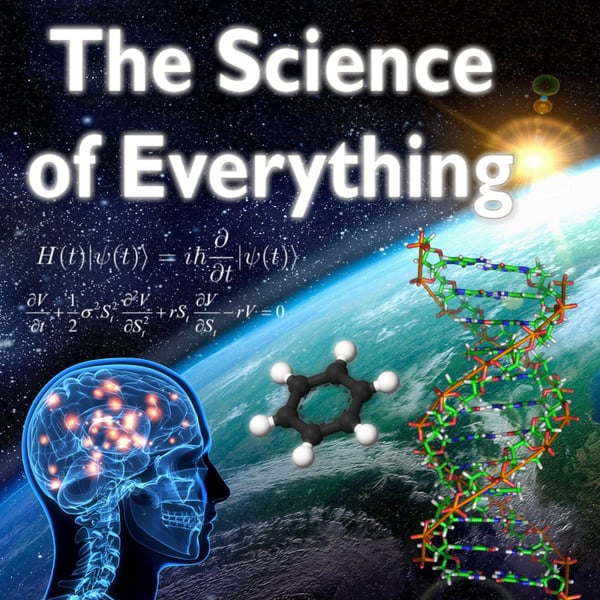Episode 83: Advanced Quantum Mechanics Part I
The Science of Everything Podcast
James Fodor
4.8 • 750 Ratings
🗓️ 26 June 2017
⏱️ 59 minutes
🧾️ Download transcript
Summary
Transcript
Click on a timestamp to play from that location
| 0:00.0 | Oh, wow, oh, wow, oh, wow, oh, wow. |
| 0:13.0 | Oh, wow. |
| 0:15.0 | Oh, wow. Hello, you're listening to the Science of Everything podcast episode 83, |
| 0:41.3 | Advanced Quantum Mechanics. I'm your host, James Fodor. |
| 0:48.0 | So in this episode, we're going to take a bit more of a deeper dive into quantum mechanics than we did in the previous episode, way back in episode 14, |
| 0:52.4 | principles of quantum mechanics, which is the recommended pre-listing |
| 0:55.8 | for this, obviously. So basically, what I'm going to do in this episode is I'm going to try to |
| 1:01.6 | explain the concepts of quantum mechanics as they typically introduced at an advanced undergraduate |
| 1:07.9 | or graduate level, depending on exactly what institution you're at. |
| 1:12.4 | So beyond the typical sort of introductory level that usually is that people's first exposure |
| 1:18.9 | to quantum mechanics. So that means I'm going to introduce the concepts of bras and kets on |
| 1:24.5 | Hilbert space and the related algebraic formulation of quantum theory |
| 1:31.3 | with the related postulates of observables as emission operators and incompatible observables and so forth. |
| 1:40.3 | Also I'm going to talk about some more advanced ideas relating to quantum mechanics, |
| 1:45.0 | particularly NERTH's theorem, particle statistics, so the difference between bosons and fermions, |
| 1:50.0 | and I'll look a bit at perturbation theory, which is an approximation technique for calculating in quantum mechanics, |
| 1:56.0 | and I'll also talk a bit about the EPR paradox and Bell's inequality. |
| 1:59.0 | So quite a bit to get through. |
| 2:02.7 | Possibly this may extend over two episodes. |
| 2:03.7 | I guess we'll see how we go. |
| 2:09.8 | And obviously, a lot of what I'm talking about in this episode is quite mathematical in nature, and I can't go through the mathematics in an audio podcast, obviously. |
| 2:13.4 | But what I'm trying to do is explain the key conceptual basis behind the mathematics to |
... |
Please login to see the full transcript.
Disclaimer: The podcast and artwork embedded on this page are from James Fodor, and are the property of its owner and not affiliated with or endorsed by Tapesearch.
Generated transcripts are the property of James Fodor and are distributed freely under the Fair Use doctrine. Transcripts generated by Tapesearch are not guaranteed to be accurate.
Copyright © Tapesearch 2025.

